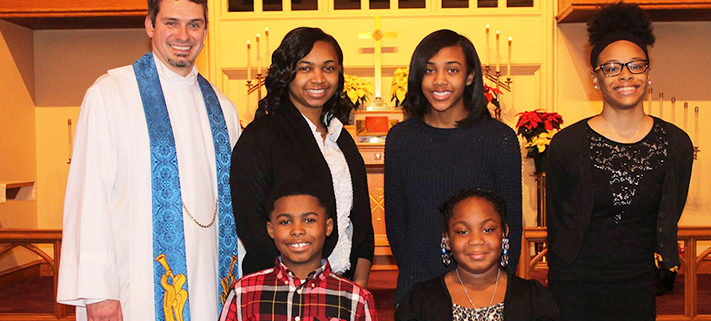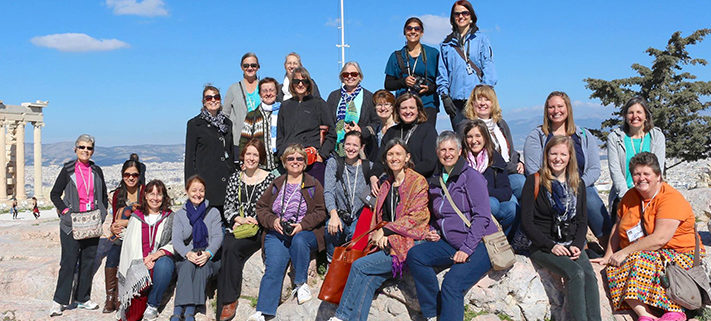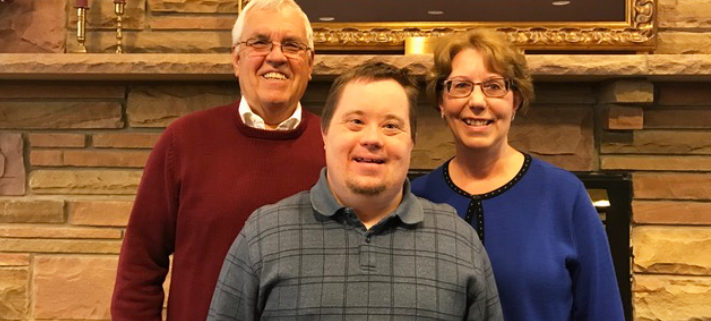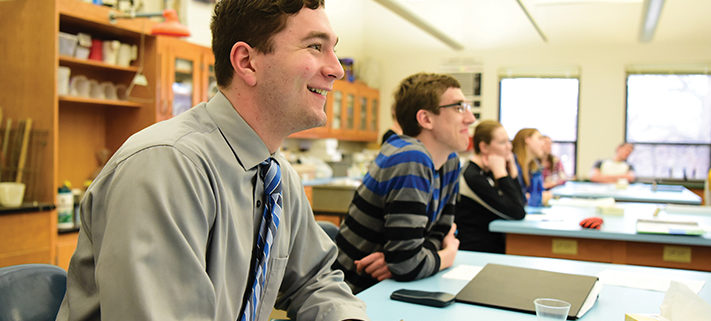How do we balance law and gospel with our children?
I don’t know about you, but the idea of my children surfing the Internet scares me. I’m unsure of how to protect them from the bad while letting them benefit from the good.
This month Heart to heart is blessed to have articles from two moms who understand these fears, have lived through them themselves, and have a variety of helpful solutions so that the Internet can be a positive resource rather than a scary one.
Nicole Balza
It seems like yesterday when the Lord blessed my husband and me with our three sons and we began the journey of parenthood in the digital age.
When our oldest was born in 1995, the Internet was brand new to everyone. Being a bit geeky, my husband and I explored tools and techniques for creating websites, which led us to bridging the miles between us and our family and friends, sharing each of our boys’ first-year baby milestones and photos via a website that we updated monthly.
Over time, as the boys grew, we continued to share monthly family news and photos using a “cutting-edge” blog platform to house our family website. Together with our sons, we’ve used the Internet to listen to family-friendly podcasts and free audio books, find geocaches and BreakoutEDU solutions, take care of our Webkinz pets, e-mail our favorite authors, learn to program, play games, create videos, design 3-D models, and so much more.
Now our boys are reaching adulthood, and we are fast approaching the empty-nest stage. As I reflect on the years of their childhood, I remember joys and challenges we encountered along the way in relation to technology. In this sinful world, it is impossible to keep our children 100 percent safe from the dangers the Internet invites into our homes. Here are some of the steps we took to guard their safety:
• Engage with them—Before allowing our boys to visit a website, we tried it out ourselves or sought the opinions of others regarding it. (A great site for reviews of all types of children’s media is commonsensemedia.org.) As our boys used websites, we used them too, guiding our boys along the way and explaining any areas of concern that came up.
• Help them create—We used the tools available on the Internet to excite our sons to use the Internet for good and noble purposes. As they learned how to code video games, we encouraged them to expand the program’s capabilities. When their interest was piqued by podcasts, we started a weekly family podcast. Over the years we used our family blog to share the boys’ creative writing, stop-motion Lego movies, and Haiku poetry.
• Block inappropriate content—Many software solutions for filtering inappropriate Internet content in the home are available. Something we’ve used for many years is OpenDNS, opendns.com/home-internet-security. The free Family Shield and Home plans include parental controls that protect every device in the home.
My husband and I did all of these things with an end goal in mind—giving our sons discerning hearts. All too quickly they have grown up and ventured out into the world alone. Now they must rely on their own judgement regarding the appropriateness of Internet content. Our prayer is that the lessons learned in their early years will stay with them.
Sallie Draper and her husband, Kevin, have three sons and live in New Ulm, Minnesota.
How many parents would take their two-year-olds to the pool for the first time and allow them to jump into the deep end? None, I hope! Being able to swim in the deep end is a process that requires lessons, practice, and experience, all guided by loving parents who want their children to enjoy swimming safely.
Staying safe on the Internet is not much different. If we want our teens to know how to enjoy using it safely, we must start the process early. This can be done in the light of God’s Word and his commands.
Internet safety is a wide net, but most parents identify several areas in which they wish to keep their children safe online.
• They are concerned with the addictive potential of games.
• They share concern over their children stumbling upon offensive sites, such as pornography. This is often connected with the idea of sexting, which occurs as early as middle school.
• Finally, parents fear the online social sites that encourage kids to talk with others, whether on gaming sites or social media sites that encourage kids to follow and be followed by others. These sites raise the concern of meeting strangers online who may not be who they portray as well as the opportunity for online bullying.
Unfortunately, many of us ignore these things until a problem arises. Being proactive in approaching these subjects really helps. Start early.
As parents, if we treat technology as a gift of God while training children to be aware of the dark side on the Internet, we can pray that they develop their Christian faith to assist them in making good and responsible choices. One way we can do that is by talking freely about the evil that is in the world that is now manifested online and can be found one click away. We can discuss this during devotions and in conversations with our children from the time they are in grade school and beyond.
The old model of keeping the desktop computer in an area of the home where Mom and Dad are walking through and can be aware of computer activity may seem outdated since we now deal with smartphones, tablets, Chromebooks, and laptops. I think it is still reasonable to expect grade school and middle school kids to use their technology in a common area of the home. It is legitimate for a parent to be made aware of musical playlists so that when headphones are used, parents know what is being consumed. As kids grow and schoolwork requires technology, a quiet place may be desirable, but it should still be understood that when homework is done on the computer, that is all that is happening, and parents may come by to see how it is going. Parents need to be vigilant.
At a time determined by parents, all mobile technology can be unplugged and kept in a specified spot. For example, maybe all family devices get plugged in at a common location for the night. Enforce the rules as you talk about why they are good for the family.
Parents can also make rules regarding time limits for game playing and can talk openly about gaming choices and their possible effects on those who play them. Conversations about learning to discern should be ongoing. Social gaming sites, perhaps, should not be allowed until an age that a parent feels the child can make competent choices in this regard. Parents will need to model good online behavior and set the tone for what is acceptable in the home. It should be a family effort.
The creation of the Internet brings many good things to us, but the reality is that it has created another level of parenting. Parents must include applications regarding the misuse of the Internet as they teach their children to discern right from wrong in all facets of life. For example, what is learned in the home as far as how to treat one another in God-pleasing ways can help children be aware of the inappropriateness of bullying online, as an extension of bullying face to face. The idea of sexting as a practice can be addressed as veering outside of what God has commanded us regarding how to keep our bodies chaste. This is an extension of pre-Internet conversations with children that now need to be brought into the scope of what sins are possible through technology. We ask God to keep us from temptation in all we do, including in our use of technology.
Parents have always taught their children about “stranger danger.” This same conversation now must be expanded to teach children about the very real dangers of social media sites with followers. Talking on those sites or on online chat areas should be discouraged. The news often shares stories of online predators and the attempt to catch them, and you can discuss these news items at family gathering times to drive this point home.
We are blessed to have God’s Word as our handbook for parenting, and it is up to us as parents to continue to nurture our children in that Word as we make applications from the technology that is so ubiquitous in our culture today. May he bless our prayerful efforts!
For a comprehensive list of websites to help parents keep their children safe online, visit forwardinchrist.net/online-safety-resources.
Gail Potratz and her husband, Phil, have three adult children and eight grandchildren. Gail has served as a teacher and technology coordinator for more than 30 years.
Discussing pornography with children
Any child who is using the Internet can encounter pornography. Conquerors through Christ, a Special Ministries team that provides resources to help people avoid or stop using pornography, has compiled resources for parents to deal with this situation. The First Word is an e-book that provides advice for talking to a child about pornography. Other e-books include Warning kids about pornography and Correcting kids who use pornography. For more information, visit conquerorsthroughchrist.net, choose “resources,” and then choose “e-books.”
Find CtC on Facebook or subscribe to the CtC e-newsletter too!
Do you have a manuscript, idea, or story from your own life you’d like to share for use in Forward in Christ or on wels.net? Use our online form to share it to our editorial office for consideration.
Get inspirational stories, spiritual help, and synod news from Forward in Christ every month. Print and digital subscriptions are available from Northwestern Publishing House.
Author: Multiple Authors
Volume 104, Number 5
Issue: May 2017
Copyrighted by WELS Forward in Christ © 2021
Forward in Christ grants permission for any original article (not a reprint) to be printed for use in a WELS church, school, or organization, provided that it is distributed free and indicate Forward in Christ as the source. Images may not be reproduced except in the context of its article. Contact us









